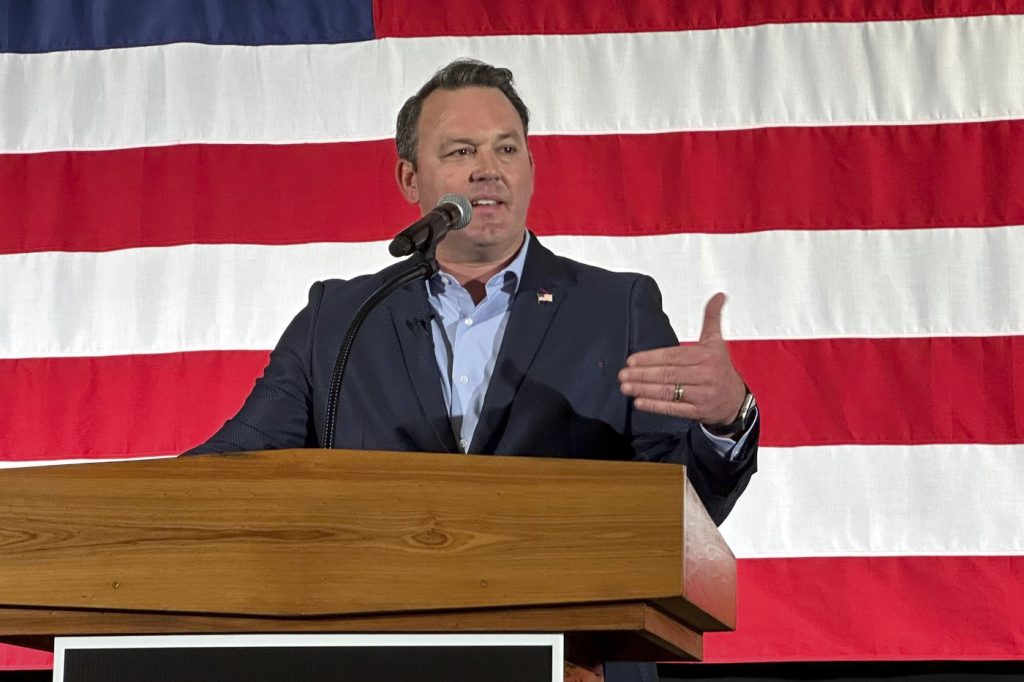ATLANTA – The political ramifications of the 2020 presidential election continue to shape the landscape in Georgia, more than in any other state. The narrow victory of Democrat Joe Biden, coupled with former President Donald Trump's unfounded assertions of electoral fraud, has created a lasting impact that influences upcoming elections. The reverberations of the 2020 election are expected to guide the Republican gubernatorial candidates for 2026, influence the Democratic primary, and play a significant role in the U.S. Senate race.
Brad Raffensperger, the Republican secretary of state who resisted Trump's attempts to overturn Biden's victory, is mounting a campaign for governor in 2026. In a notable shift, former Republican Lt. Gov. Geoff Duncan, who also rebuffed Trump’s efforts, is now running as a proud Democrat. On the other hand, current lieutenant governor Burt Jones embraces his support of Trump's claims regarding the 2020 election, positioning himself as a fierce advocate for Trump's agenda.
Jon Ossoff, Georgia's Democratic U.S. Senator, secured his position partially due to the fallout from the chaotic events surrounding the 2020 election. Jay Morgan, a former executive director of the Georgia Republican Party, pointed out that Trump's continuing influence ensures that the debates surrounding 2020 remain relevant in political discourse. Nevertheless, some Republicans express concern that revisiting these tensions may alienate broader voter bases, as noted by Buzz Brockaway, a former Republican state legislator, who stated that “relitigating the 2020 election” could detract from issues that more voters care about.
Disputes stemming from the 2020 election extend beyond Georgia. In Michigan, state House Republicans have proposed impeaching Democratic Secretary of State Jocelyn Benson over claims regarding her support of Biden's victory. Arizona saw a Republican lawmaker elected in 2024 to oversee elections after questioning election administration. Pennsylvania continues to face lawsuits over a 2020 law concerning mail voting, which could become a focal point in the upcoming 2026 gubernatorial campaign.
Support for Trump’s baseless claims still serves as a litmus test within the Republican Party. In several states, GOP primary candidates are facing challenges for not adhering closely enough to Trump’s narrative post-January 6 insurrection. However, in Georgia, the aftermath of the 2020 election is a critical element in every significant race, making the atmosphere particularly charged as candidates prepare for their campaigns.
Burt Jones has already received Trump's endorsement and is presenting himself as the genuine Republican candidate after assisting Trump’s efforts in 2020. His rivals, Raffensperger and Attorney General Chris Carr, have distanced themselves from Trump's influence. The campaign rhetoric among GOP candidates reflects a significant bifurcation where some candidates embrace Trump openly, while others creep cautiously around the topic, seeking to appeal to both sides of the party. For instance, Raffensperger chose not to mention Trump in his gubernatorial announcement, focusing instead on his defense of Georgia's voting system.
Duncan's departure from the Republican Party encapsulates the ongoing struggle over Trump’s legacy. He is attempting to redefine himself as a Democrat committed to ideas like supporting small businesses and new technology, while also highlighting his opposition to Trump. He has effectively identified the influence Trump still wields over the Republican Party, suggesting that the eventual GOP primary winner will have to submit to Trump's dominance in order to galvanize the base.
Gov. Brian Kemp is similarly navigating a complex political landscape. Although he faced backlash from Trump in the past, he proposes a slate of candidates who resonate with Trump’s base while attempting to appeal to broader support by prioritizing local issues. Candidates like Derek Dooley, who align closely with Trump’s ideology, find themselves on solid ground against rivals who are seen as straying too far from Trump's narrative.
While Democrats are increasingly hopeful that the division within the GOP will attract independent voters, GOP leaders maintain a firm belief that Trump’s base remains essential for securing nominations and ensuring voter turnout. The events of 2020 have not only reshaped politics in Georgia but continue to create significant implications for the future of political parties in the state.











